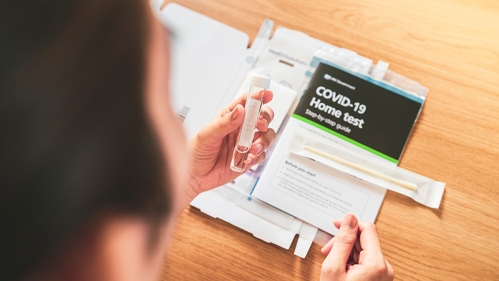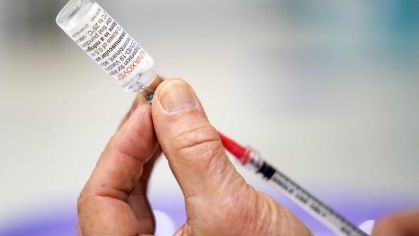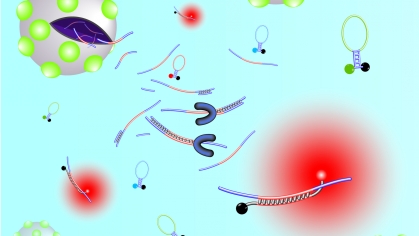Outreach by Local Groups Essential for Expanding Access to At-Home COVID-19 Testing in Vulnerable Communities

Rutgers study reinforces the value of working with community partners to strengthen health outcomes
Community-based groups can be more effective than health-care organizations at expanding access to at-home COVID-19 testing in underserved communities, according to a Rutgers study.
In a survey of Black and Latino residents in four New Jersey communities with high rates of COVID-19 infection, community-based organizations (CBOs) – such as human service-focused nongovernmental organizations (NGOs) – were more effective than health-care organizations (HCOs) at increasing awareness of at-home testing availability.
“Although the odds of completing an at-home COVID-19 test were higher for people recruited by HCOs, community-based organizations were significantly more effective at raising awareness of testing opportunities,” said Emily Barrett, an associate professor in the Department of Biostatistics and Epidemiology at Rutgers and lead author of the study published in the American Journal of Public Health.
“These results serve to reinforce the value of working with community partners to strengthen health outcomes,” Barrett said.
Little research has been done on strategies to enhance COVID-19 testing in underserved populations, where testing-site locations and hours of operation often serve as barriers to uptake, Barrett said. Moreover, no previous research has examined this issue in the context of at-home testing, she added.
To fill these gaps, Barrett and Rutgers researchers, together with four HCOs (including the Robert Wood Johnson University Hospital at Rutgers) and 18 CBOs – such as local chapters of the NAACP and the United Way – developed the New Jersey Healthcare Essential Worker Outreach and Education Study - Testing Overlooked Occupations, or the NJ HEROES TOO program.
Funded by a $5 million grant from the National Institutes of Health, NJ HEROES TOO was created to expand access to COVID-19 testing in New Jersey counties with high poverty rates and disproportionate disease burdens.
As part of the NJ HEROES TOO project, Barrett and the NJ HEROES TOO team conducted a study to evaluate alternative approaches to promoting at-home testing. Partners from HCOs and CBOs were asked to recruit Blacks and Latinos in their communities to complete an online questionnaire about their experiences with COVID-19. Partner organizations could use any means to promote the free testing program – from social media campaigns to face-to-face interactions.
Respondents who completed the survey were given a code for a free at-home COVID-19 test through a third-party provider.
Of the 2,415 eligible participants, questionnaires were completed by 1,100 people and 94 percent were recruited by CBOs. Of these, 404 participants (about 37 percent) requested COVID-19 tests, of which 234 (58 percent) were completed and returned.
The researchers noted key disparities among those who took advantage of the free testing opportunity. Participants in poorer health or who experienced greater economic challenges during the pandemic were less likely to complete COVID-19 testing during the study. The opposite was true for people with public or no insurance, older adults, lower-income participants and unvaccinated participants.
“Community-based organizations are very good at reaching people, but systems for getting at-home COVID-19 tests where they are needed are still lacking,” Barrett said. “As the pandemic continues, we need to think about ways to enhance the COVID-19 testing process to reach people who may otherwise be left behind. Essential to that goal is helping HCOs and CBOs work together.”



